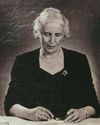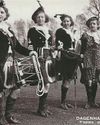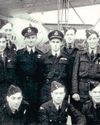
In May 1940, more than 300,000 allied soldiers of the British Expeditionary Force found themselves isolated and cut off on the beaches of Dunkirk in France. The navy sent 850 Little Ships across the Channel to rescue them. Among them were 30 Thames sailing barges, including one called Pudge; only 17 returned.
Thames sailing barge Pudge was built in 1922 by London & Rochester Trading Co Ltd. It had a hull constructed of pitch pine on oak with a flush deck and measured about 83ft in length with a width of 21ft. It carried a spritsail rig and bowsprit and was purpose-built to carry oil seed and other goods between London and Ipswich and was never intended to be part of a wartime evacuation from Dunkirk. This is a craft that has survived numerous close encounters in a long and compelling history.
Tragedy struck Pudge in 1938 when bound from London to Newport (Isle of Wight), a fire broke out on board, caused by an upended cabin oil lamp near Deal in Kent. However, the barge survived, and rescue came in the shape of the motorboat Rose which took the beleaguered vessel to safe anchorage off Deal Pier.
Four months later misfortune struck again. Pudge was carrying a cargo of oilcake from London to Newport when it collided with SS Lapwing and sank in the Thames Estuary. Luckily, master Bill Watson (skipper for 26 years) and a crew of three were saved. The barge was raised and repaired but the lawsuit which followed apportioned blame to the London & Rochester Trading Co Ltd which ended up losing the case.
This story is from the October 2023 edition of Best of British.
Start your 7-day Magzter GOLD free trial to access thousands of curated premium stories, and 9,000+ magazines and newspapers.
Already a subscriber ? Sign In
This story is from the October 2023 edition of Best of British.
Start your 7-day Magzter GOLD free trial to access thousands of curated premium stories, and 9,000+ magazines and newspapers.
Already a subscriber? Sign In

Animal Magic
Hilary Middleton recalls a children's author whose tales are still enjoyed today

BACK IN TIME WITH COLIN BAKER
BoB's very own Time Lord prepares for an alternative to panto, recalls his early reading choices and having his scenes cut from two cutting edge comedies

Marvels in Miniature
Claire Saul learns about the exquisite works on display at a new exhibition being held at a historic Georgian mansion

The Last Post
Michael Foley witnessed the end of an era

The Box of Delights
Chris Hallam remembers how his Christmas 40 years ago was lit up by a magical television drama

The Queen of Stage and Screen
Chris Hallam pays tribute to actress Dame Maggie Smith

Other 07
Jonathan Sothcott looks at the seven Sir Roger Moore films that you should have in your collection

In the Best Possible Taste
Derek Lamb remembers the wireless wizardry of Kenny Everett

POSTCARD FROM BUCKINGHAMSHIRE
Bob Barton remembers a ghostly train journey, enjoys some wassailing and fulfils a long-held ambition of attending a lawnmower festival

MERCY MISSION
John Greeves recounts the remarkable exploits of Sunderland flying boat T9114